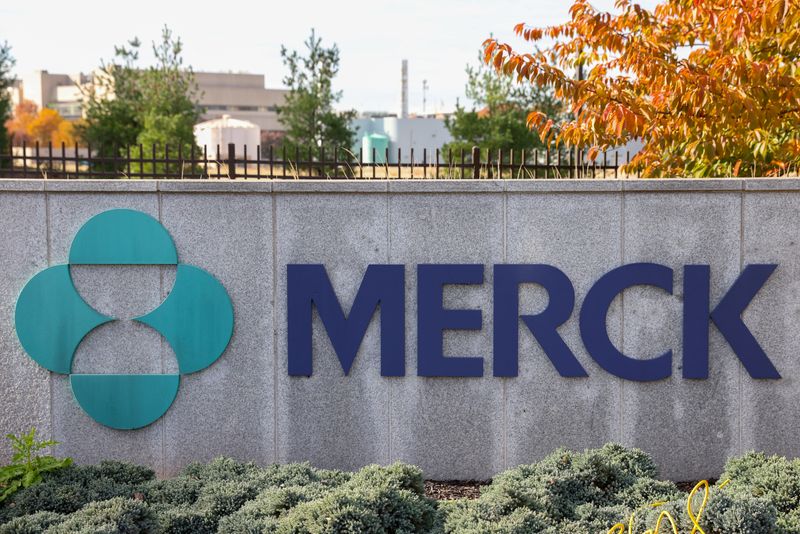(Reuters) - Merck (NS:PROR) said on Monday its drug, Winrevair, helped significantly reduce the risk of death in patients with a rare condition which causes high blood pressure in the lungs, months after it secured approval in the United States.
Winrevair was approved to treat pulmonary arterial hypertension (PAH), a progressive disorder caused by a constriction of arteries in the lungs, leading to symptoms such as shortness of breath, chest pain and dizziness.
Merck said its drug met the main goal of significantly reducing the time to disease worsening, lung transplantation or death in a late-stage study of 172 patients with advanced stages of the condition, already receiving background treatment.
The condition affects about 40,000 people in the United States.
An independent data monitoring committee has recommended the study be stopped early but participants would be able to continue receiving the treatment, Merck said.
Winrevair, which costs around $238,000 annually, was the first treatment to secure approval from the U.S. Food and Drug Administration from a class of drugs, which target a type of protein called activin.

The drug brought in sales of $149 million for Merck in the third quarter amid concerns around bleeding risks in patients.
"We think Winrevair's efficacy outweighs safety risks in severe patients — whom it is likely going to be limited to," Oppenheimer analysts said in a note earlier this month.